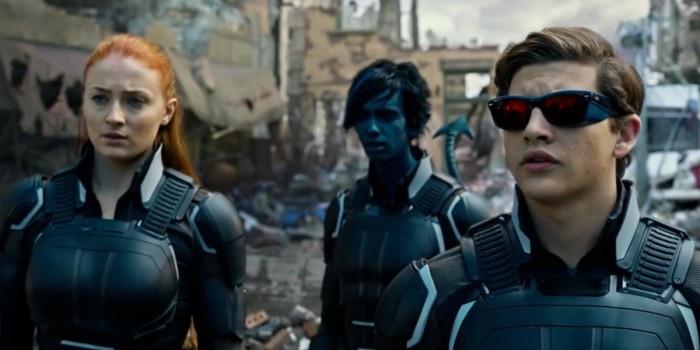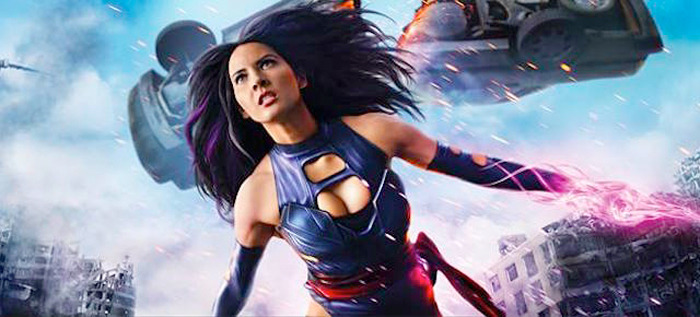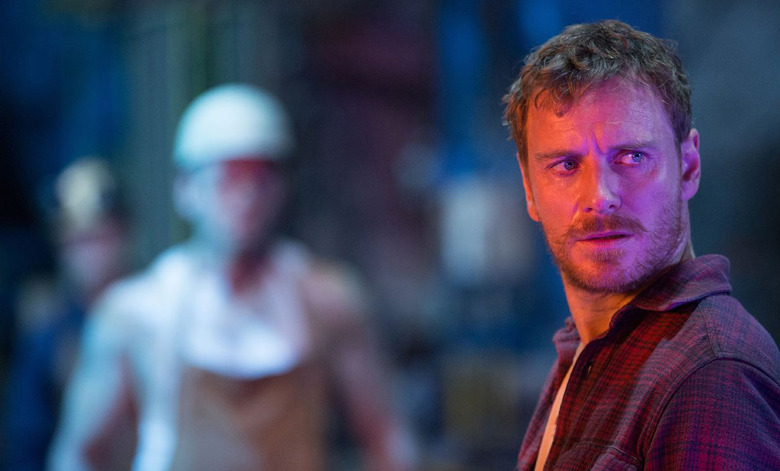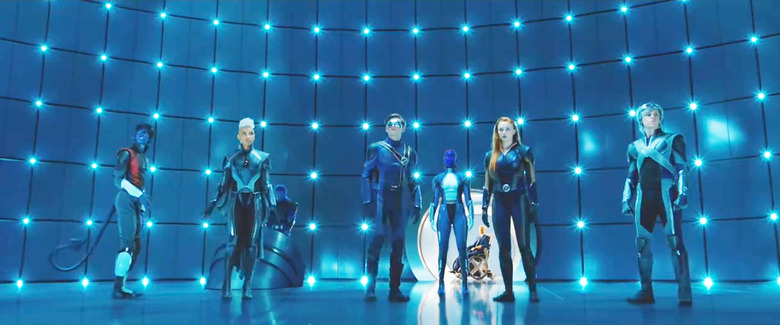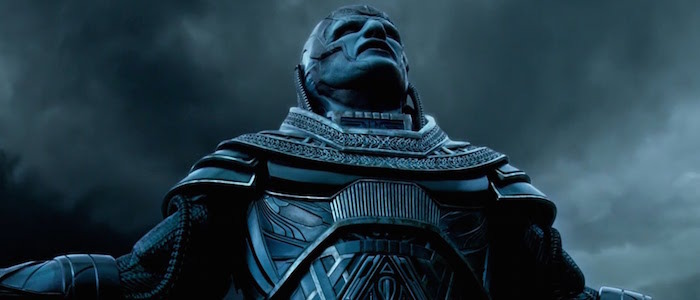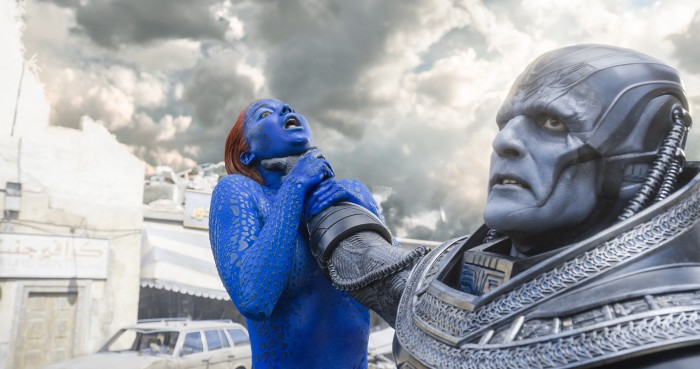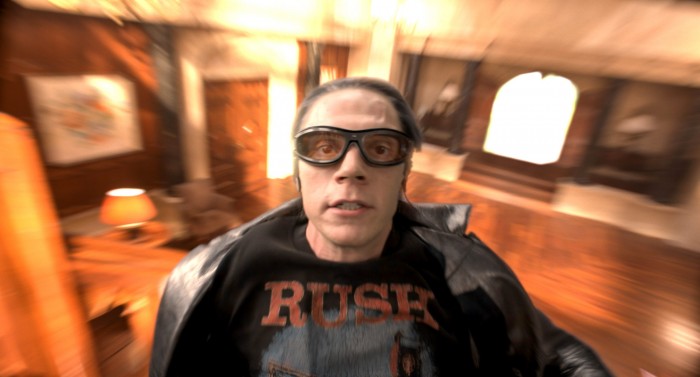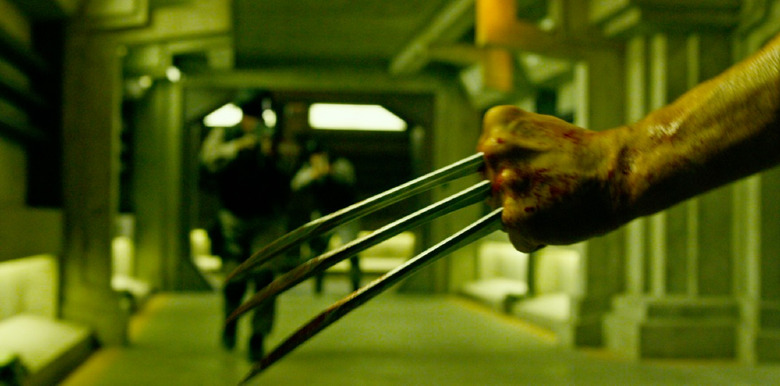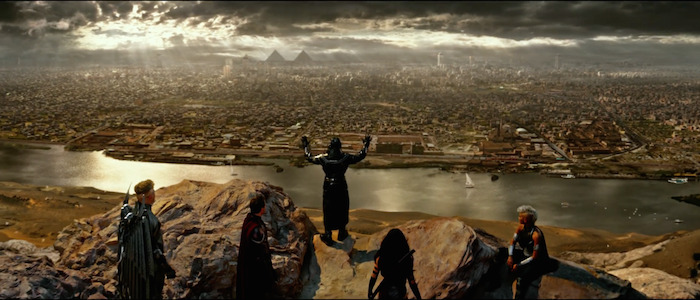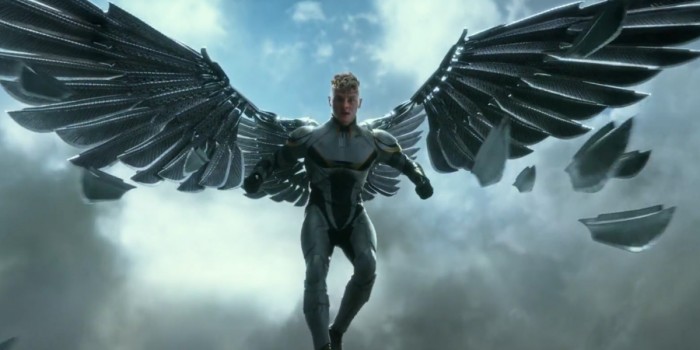'X-Men: Apocalypse' Spoiler Review: How Is This Movie Worse Than 'Batman V Superman'?
Here's a sentence I never thought I would write: X-Men: Apocalypse may be a worse movie than Batman v Superman: Dawn of Justice, a film that I haven't been shy about disliking in a public setting. And yet, the latest film in the increasingly convoluted X-Men series forced me to consider a big question – do I prefer the awful movie that shoots for big ideas and belly flops on the pavement or the awful movie that tries nothing, risks nothing, and is content to just exist without even trying to try something special? I have an answer.
A Broken Timeline
In the modern comic books, the history of the Marvel universe exists in a continuously shifting decade. No matter how much time has passed in the real world, the history of these characters always happened within the past ten years or so. It doesn't hold up to scrutiny (and it shouldn't), but it's an elegant solution that allows characters to never age, to remain static even as they move forward. A storyline from thirty years ago may be referenced, but within the context of the story, it was a far more recent event.
Some may see the ageless characters in X-Men: Apocalypse and think this is a deliberate reference to how these characters never grow old, but unlike the comics, the timeline here never shifts. X-Men: First Class took place in 1962. X-Men: Days of Future Past took place in 1973. And now, X-Men: Apocalypse takes place in 1983. This means twenty one years have passed for these characters. This passage of time is referenced time and time again in this movie. The history the X-Men and their enemies and allies have shared is vital to the plot. The passage of time informs countless decisions and more than a few character arcs.
So why does everyone look exactly the same? If Magneto was a ten-year old boy at Auschwitz, why doesn't Michael Fassbender have grey hair or show any sign of aging? If Havok was was a teenager during the events of First Class, he would be in his late-thirties during Apocalypse, but Lucas Till still looks impossibly baby-faced. Why has Quicksilver not changed in the slightest in the past decade, with the scene-stealing speedster still living in his mom's basement and still wearing the same clothes and looking and acting like he did a decade previously. There has literally been no effort to showcase wear and tear on these characters. There are no wrinkles and no white hairs. Nobody has changed in two decades and no number of cheeky references to characters looking good after all these years can make up for how weightless this all feels because of it. X-Men: Apocalypse constantly references the events that have taken place over twenty years, but it refuses to let its characters change from those experiences. It hits the rest button with the start of each film. It gives us the deliberate impression that nothing in these movies actually matters.
It ultimately feels like director Bryan Singer simply doesn't care about the world he has helped build. Even when you take Days of Future Past's timeline-altering climax into account, Apocalypse deliberately ignores the continuity of previous movies in ways that are frustrating and confusing. The X-Men movies don't have to follow Marvel Studios' path and build a complex, interconnected universe where the events of one movie always affect another, but it would be nice if there was some consistency to this world. How are we supposed to care about the journey of the X-Men when the people actually making the movies seem to care so little for there previous film they made?
New Characters...
X-Men: Apocalypse does introduce a whole bunch of new (and newly re-invented) characters into the mix, but the results are thoroughly mixed. Some, like Kodi Smit-McPhee's Nightcrawler, make solid first impressions, but it's hard to judge the character or a performance when he gets so very little to do. Others, like Tye Sheridan's Cyclops, feel like they're going to be important, like they are actually going to have an arc, but simply get lost entirely in the mayhem of the final act. Of the new heroes, Sophie Turner's Jean Grey suffers the most. Turner (consistently one of the strongest players on Game of Thrones) seems uncomfortable with her American accent and never gets a handle on this young version Jean.
However, Turner fares far better than Oliva Munn, whose Psylocke has maybe three lines of dialogue and contributes nothing to the film beyond wearing a ninja swimsuit to Auschwitz. Ben Hardy's Angel fares only slightly better, but he's reduced to one-note muscle within a scene or two and unceremoniously dispatched during the grand finale. Only Alexandra Shipp's Storm leaves an impression, but her character feels like a built-in teaser trailer for the sequel instead of a proper character.
X-Men: Apocalypse is full of new characters, many of them played by strong actors, but they are never supplied with moments that allow us to like them or fear them. The film seems to think we'll be satisfied by their mere presence, rather than them actually earning our affection.
...and Familiar Faces
The returning characters fare better overall, but this is one of those cases where you can see seams. You can actually see these talented men and women struggle to care about the material they're given.
Of the main players, James McAvoy and Michael Fassbender fare the best. McAvoy still seems to be having a ball playing a superhero and his Charles Xavier, playful and brave and empathetic at every turn, is as good as Patrick Stewart's interpretation. Fassbender, an actor who is literally incapable of giving a bad performance, weathers some truly awful material and manages to bring a great deal of nobility to Magneto. None of this changes the fact that Magneto and Professor X face the exact same dilemma and have the exact same conversations and literally replay the dynamic we've seen in five previous movies, but both actors share enough chemistry to weather the storm.
Meanwhile, Beast and Mystique have nothing of interest to do in this movie and Nicholas Hoult and Jennifer Lawrence know it. These are the two most disinterested performances either actor has ever given and it's hard to blame them for their apathy. The screenplay struggles to find anything for them to do and so many of the early seeds fail to blossom. Sure, they're running a fresh young team of X-Men when the credits roll, but that journey never feels complete. The film never gives them a chance to truly rise to the occasion and prove themselves as worthy leaders. Their lack of leadership during the final fight is especially frustrating. Apocalypse being defeated by a deus ex phoenix doubly so.
Watching Hoult and Lawrence drown in this material while McAvoy and Fassbender do their damnedest to elevate it is a fascinating study in contrasts. You feels bad for the former and strangely proud of the latter.
Blue and Proud?
Beast and Mystique spend the vast majority of X-Men: Apocalypse in their human forms, which could be the result of a few things. First: keeping these two out of make-up could have been a budgetary decision, allowing those precious latex funds to be put toward more generic CGI building crumbing. Second: Hoult and Lawrence, already so disinterested and annoyed in every second of screen time, may have demanded to spend as much of the movie as possible not wearing incredibly uncomfortable, claustrophobic body suits. Three: Bryan Singer still isn't completely down with the funky world of the X-Men.
Singer has been under fire from fans since the first X-Men movie back in 2000, when he gave the team generic black leather uniforms in place of their colorful comic book duds. Since then, the superhero movie landscape has changed. Audiences have grown accustomed to comic book movies embracing their origins and getting a little goofy and silly. And yet, the X-Men movies continue to hedge their bets. The whole appeal of a character like Beast is that he's a hulking, furry blue monster who hangs out in a lab all day doing his science. Take that away from him and you have...Nicholas Hoult in a lab coat. Mystique may get a line or two about being fearful of showing her true self, but that feels like a weak sauce excuse to keep Lawrence's expensive face on screen.
The final insult comes in the closing scene, where the newly assembled X-Men show off new comic book-accurate costumes for about ten seconds. A half hour earlier, these same kids suited up in generic leather outfits they found in a military base. We got another X-Men battle where the heroes where the most generic costumes imaginable. After 144 interminable minutes, Singer finally shows fans and audiences what they've wanted to see for sixteen years...and then he cuts to the credits. For the fourth time, Singer has refused to commit to the wild side of the X-Men, to embrace this wild world and run with the iconography that has made these characters pop culture touchstones for decades.
Apocalypse in the Flesh
Why is Oscar Isaac in this movie?
That's a serious question. Why is Oscar Isaac, one of the most talented young actors working today, in X-Men: Apocalypse? Buried under blue make-up, he looks nothing like himself. With his voice distorted to a mechanical mumble in post-production, he could have been dubbed by another actor and no one would ever notice. And it's not like Apocalypse is an especially interesting character on the page. He's a generic supervillain with generic motivations who never evolves beyond being a Saturday morning cartoon character. If he had a mustache, he would be twirling it in every scene. Apocalypse is supposed to be a god, a seemingly unstoppable force, but that's no excuse for him to be oh-so-very-boring.
To be fair, maybe Isaac jumped at the chance to bury himself under prosthetics and go full-ham. A lot of actors like to vanish under latex and try the whole evil bad guy thing at least once in their careers. If that's the case, it's hard to blame him. However, the rest of the movie lets him down. The trailers don't lie: the Apocalypse make-up is hideous and not in a good way, making the most powerful bad guy in X-Men history look like he stepped out of an episode of Power Rangers. He's not fun to look at and thanks to the filter on his voice, all of Isaac's work is reduced to a boring drone. The great campy moments (like when Apocalypse places his hand on a television and says that he is "Leeeeaaaaarning") are few and far between.
He's a lousy villain in every way, a store brand megalomaniac that wastes the talents of a truly incredible actor. He never gets a good speech. He never gets a big moment. He never even gets a quiet conversation where we're allowed to, you know, understand where he's coming from. The X-Men series has always found a sympathetic and compelling villain in Magneto, a character who only grows more fascinating when the movie pauses long enough to let us hear from things from his perspective, to recognize how he has reached his conclusions. Maybe the lack of nuance in Apocalypse would have been fun if Isaac were recognizable, if his voice were clear, if the actor under the make-up had truly allowed to cut loose. But that's not the case. This is the worst comic book movie villain since Malekith in Thor: The Dark World.
Endless Introductions
For a movie about superheroes who have to literally prevent mass genocide in the third act, X-Men: Apocalypse sure spends a great deal of its time watching characters as they, well, don't do much of anything. The first ninety minutes of the film are an endless parade of character introductions, with characters slowly gathering in two camps and waiting around for something to happen. It's a problem with Apocalypse and his entourage (each of whom seems to instantly lose any semblance of a personality the moment they join his squad), but it's death for the heroes. The series veterans spend much of the movie bemoaning the fact that the X-Men have disbanded instead of, you know, forming the X-Men. You know there's a problem when a vital character, a character whose presence is vital to the conclusion of the film, enters the film after the hour mark. Quicksilver finally makes his entrance at a point in the movie where the plot should be ramping up, but the film is still putting its pieces into place. Compared to a movie like Captain America: Civil War, which juggles an enormous cast with elegance, it's a slog.
But these endless character introductions are a symptom of a limp story that takes far too long to shift into gear and ends up only hitting beats we've seen a hundred times before featuring characters we have never been given a chance to care about. This is the third X-Men movie in a row to open with the X-Men non-existent or disbanded. This is the third movie in a row where the team has to come together in the homestretch. It's a squishy retread of concepts that were better explored in First Class and Days of Future Past. It's a story that's afraid to make a decision.
Two Good Scenes
Although X-Men: Apocalypse is the $200 million equivalent of a bored shrug, it does feature two particularly inspired scenes that suggest that, when engaged, Bryan Singer still has an eye for action and appreciation for gonzo weirdness.
Yes, that Quicksilver scene is, for lack of a more elegant phrase, pretty rad. It could have and should have been a dull retread of what we already saw in Days of Future Past and...it kinda is a dull retread of what we already saw in Days of Future Past. However, watching the silver-haired speedster single-handedly evacuate Xavier's school in the seconds before an explosion blows the entire building to smithereens is weird and thrilling and hilarious, playing with just enough tongue-in-cheek humor to balance the tragedy of the overall situation. I also appreciate that it is the only action scene in the entire movie built around a superhero saving people and he does it with style and aplomb. We've seen countless cities fall in big action movies, but it's not every day we get to see a character like this save a bunch of children from certain death with a grin on his face. Justice League, and the future Flash spin-off, should take a long, hard look at this film's depiction of Quicksilver's powers and how they are showcased on film.
The other good scene, and I hesitate to call it "good," is the sequence where Apocalypse takes Magneto back to Auschwitz and assists him in turning the entire location into a pile of rubble. Good doesn't feel like the right word here. More than anything else, it's audacious. It's preposterous. It's a scene designed to push buttons in a movie that otherwise tries to avoid stirring up anything interesting or unique at all. For a moment, you can forget that Michael Fassbender is far, far too young to have been a kid at this camp and still look like he does in 1983 and just appreciate that weirdo grandeur of it all. A Holocaust survivor, an ancient Egyptian monster, a scantily clad ninja, a metal-winged man, and a weather witch all share a moment of catharsis. It's the kind of insanity that belongs in a more inspired movie.
That Pointless Wolverine Subplot
X-Men Apocalypse is 144 minutes long and you can feel every second. Part of the blame can go to the above-mentioned pacing issues, which makes the movie feel more like a collection of character introductions strung together with scenes of exposition, but the chief contributor to the film's obnoxious length is an extended visit to a certain secret military complex, a very long scene that exists solely to allow Hugh Jackman's Wolverine to show up for a few minutes.
If we assume that Days of Future Past completely wiped the timeline, we can understand and forgive that Logan is being freed from the Weapon X program in 1983 instead of the previously established 1979. We can also (possibly) forgive how the facility looks completely different and appears to be in a completely different location. What's unforgivable is that this scene is a thirty-minute left turn away from the plot, which has just begun to heat up by revealing itself to be a strange remake of Superman IV: The Quest For Peace, with Apocalypse filling in for Superman. Rather than fill this precious time with our characters doing something and making decisions and giving us a reason to care about them beyond the fact that they have names we recognize, this time is spent unleashing Wolverine so he can kill a bunch of people, have a creepy moment with Jean Grey, and literally scamper off into the woods.
It is never explained how Wolverine ended up in the captivity of William Stryker when Days of Future Past clearly ended with his body being recovered by Mystique disguised as William Stryker, but whatever. X-Men: Apocalypse doesn't care about anything lining up.
This is the eighth X-Men movie and the eighth X-Men to feature Wolverine (to be fair, he only made a one line cameo in First Class). No, you are not the only one feeling fatigued by this character. That this film feels the need to take a gigantic detour just to let him show up for five minutes feels like everyone involved being afraid to let go of Logan, of Hugh Jackman. It's a disconcerting lack of confidence. Does anyone involved think these movies can succeed without him?
The Final Fight and Superhero Dynamics
It's not X-Men: Apocalypse's fault that its being released in the wake of Captain America: Civil War, a film that arguably features the best superhero fight scene committed to film. That big airport fight, with its dozen super-powered combatants, feels like the new gold standard for depicting how these kinds of characters can clash. Each character's powers and weaknesses and clearly explored. Each hero's powers bounces off another's with varied outcomes. Teammates combine their powers in unique ways and the results are surprising, cool, and frequently hilarious. It's nothing short of pop alchemy – Spider-Man and Ant-Man fight in such different ways and the movie takes advantage of that.
While the final fight in X-Men: Apocalypse is gigantic in scope and takes place in the middle of a city that has been literally wiped out (not a civilian to be saved in sight!), it all feels so very familiar. Too many characters spend the bulk of the climax on the sidelines. Others simply exchange generic blows. Despite spending so much time building up each side of the conflict, the showdown between the new X-Men and the Four Horseman is surprisingly uninspired, with everyone more or less doing the same thing. The final fight with Apocalypse himself is more disappointing, with this varied group of heroes all participating in a contest of "who much crap can we throw at this guy until something happens." Meanwhile, Apocalypse himself, with his nebulous power-set that includes anything the movie needs him to have in a given moment, makes for a shockingly dull final opponent. Our heroes don't defeat him as much as they blindly stumble into a victory, which isn't satisfying in the least.
And Like That, It's Gone
X-Men: Apocalypse has so little on its mind. It's not slick, crowd-pleasing entertainment like Captain America: Civil War. It's not setting out to upend superhero movie expectations like Deadpool. Heck, it's not even as interesting as Batman v Superman: Dawn of Justice, a movie whose every poor decision showcases an admirable but thoroughly wrongheaded commitment. It's simply a collection of scenes we've seen before, starring characters we've seen before, in a plot with no surprises, assembled by a filmmaker whose waning interest in the X-Men universe is evident in every frame. It's a depressing experience, a slog that doesn't even have the decency to be bad in a way worth talking about. For better or worse, I'll be complaining about the poor choices made in Batman v Superman five years from now. I'll forget this movie even existed by next week.

